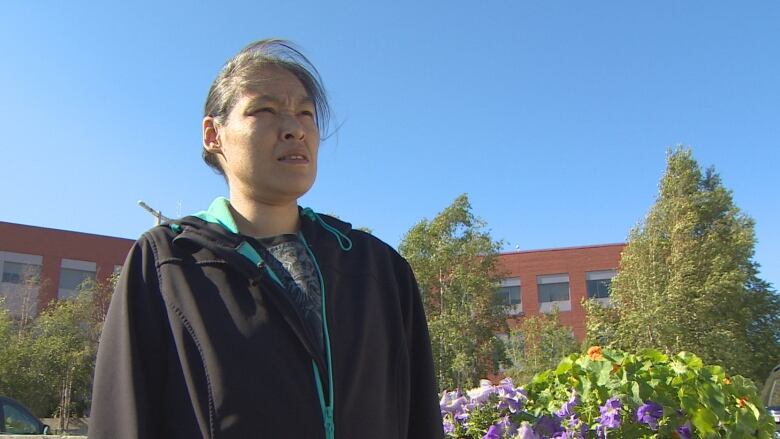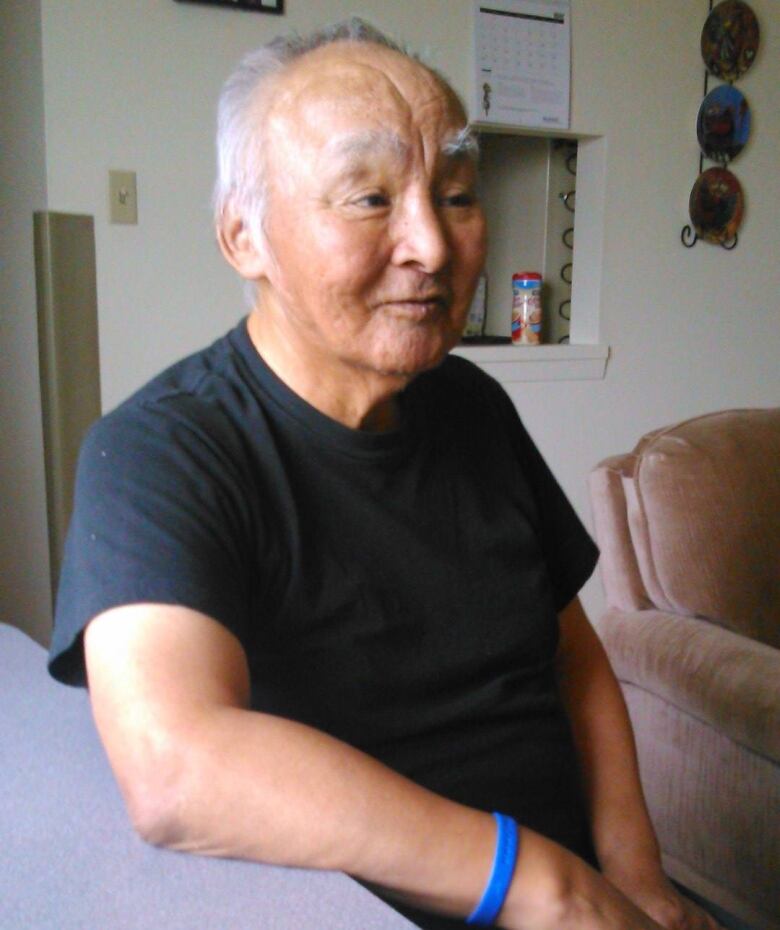Inuvialuit woman says uncle's stroke mistaken for drunkenness
'He just looked at me and he was yelling 'I'm not drunk! I'm not drunk!'' says Maggie Papik

Maggie Papikknew something was wrong when shegot a call from staff at her uncle Hugh Papik's elders home on Aug. 3.
According to Papik, staff told her she needed to "deal with him" because he was drunk. They had found him lying on the ground covered in his own urine.
Hugh Papik, a 68-year-old Inuvialuit man, hadhad several strokes in the past.

"He just looked at me and he was yelling 'I'm not drunk! I'm not drunk!'"
She brought him to the Aklavik Health Centre, but says nurses there just kept telling her her uncle was drunk. Papik says it took nursing staff six hours to order a medevac for her uncle to the nearest hospital, 120 kilometres away in Inuvik.
By the time he reached Inuvik, he didn't know his own name, she says.
Papik says doctors later told her that her uncle had had a stroke that caused swelling in his brain. He was sent on to Stanton Territorial Hospital in Yellowknife for a CT scan, where doctors told Papik the swelling in her uncle's brain was too extensive he was brain dead.
On Wednesday, Papik brought her uncle back to Inuvik so that family and friends could say their goodbyes. She unplugged him from life support later that day.
"Now it's just all on his own time, whenever he's ready."
MLA looking into case
Papik says racism was a factor in the way her uncle was treated.
"Natives cannot be treated like this," Papik said.
"There's a difference between the way a white person and a native gets treated. I bet if you were lying down stroked out, they'd pick you up and haul you out of there. But if you were native they'd say, 'Oh, she's drunk and passed out.'"

"The CEO of the N.W.T. Health and Social Services Authority has reviewed the matter and she is confident that appropriate clinical practices were followed," spokesperson Damien Healy wrote in an email to CBC.
"There is no further follow-up review being considered.
"We can assure you that we take these concerns seriously," Healy said.
But Mackenzie Delta MLA Frederick Blake Jr. is calling for the health department to take another look. Maggie Papik has given him permission to look at Hugh Papik's confidential health records to better understand the case.
Is misdiagnosis common?
Dr. Jim Corkal,the health department's chief clinical adviser,won't speak directly to the Papik case, but says the signs of a stroke are quite clear: slurred speech, drooping facial features and weakness in the arms.

Asked if the signs of stroke are often misdiagnosed, Corkal says: "No. It's pretty easy. Face, arms, speech there can certainly be a lot of other things that may cause some of those features, but you should be getting that person to the emergency room."
Corkal also said it's critical that someone who has had a stroke be treated as soon as possible to prevent lasting brain damage.
'Always made you smile, laugh'
Maggie Papik says she is unsure what her next step will be, but is looking at bringing a legal case against the territorial government for the racist treatment she says her uncle received.
"He was happy, joyful. He always made you smile, laugh, even if you didn't know him," she said.
"He wasn't drunk. There's lots of natives that are being wrongfully treated. That's just not right."
Got a story to share withCBC North? Contact: hilary.bird@cbc.ca












_(720p).jpg)


 OFFICIAL HD MUSIC VIDEO.jpg)
.jpg)



























































































